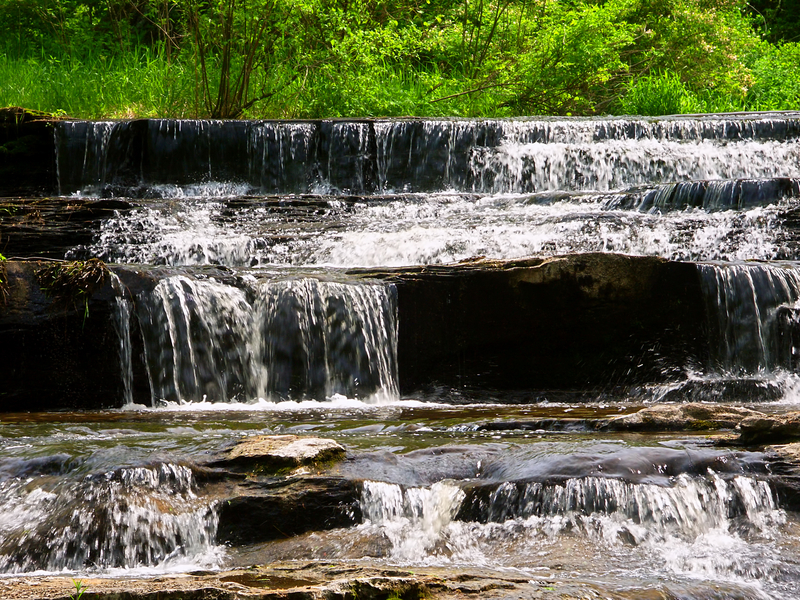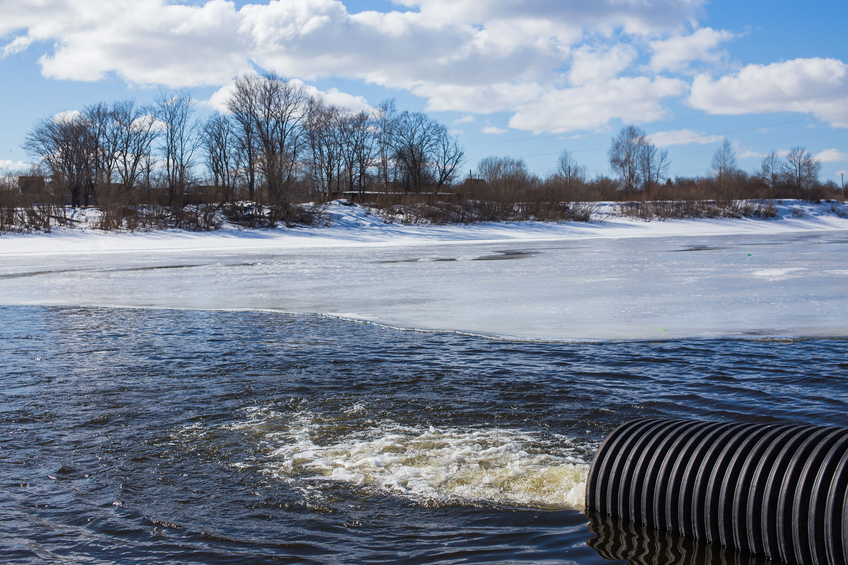Illinois Civil and Laws/Rules/Ethics/Sexual Harassment 30 PDH Discount Package 1
Courses in this Package
Concrete Removal, Repair and Maintenance (C06-002)
Groundwater Hydrology (C09-002)
Illicit Discharge Detection and Elimination (C05-002)
Low Impact Development Design Strategies (C07-006)
Sexual Harassment Prevention for Illinois Professionals (IL1-001)
Engineering Laws, Rules, and Ethics for Illinois Professional Engineers (IL2-001)

This online engineering PDH course provides guidance on the removal methods of deteriorated concrete structures as well as guidance on materials and methods to repair or rehabilitate the structure. Guidance is also included on maintenance of concrete. A basic understanding of underlying causes of concrete deficiencies is essential to perform meaningful successful repairs.
This 6 PDH online course is applicable to civil, geotechnical and structural engineers, as well as design and construction personnel working on construction projects involving evaluation and repair of concrete structures.
This PE continuing education course is intended to provide you with the following specific knowledge and skills:
- Familiarization with concrete removal methods and preparation for repair
- Understanding the types of materials and methods for rehabilitation
- Understanding how to maintain concrete structures following repair
In this professional engineering CEU course, you need to review only Chapters 5, 6 and 7 of the US Corps of Engineers Publication EM 1110-2-2002, "Evaluation and Repair of Concrete Structures".
Upon successful completion of the quiz, print your Certificate of Completion instantly. (Note: if you are paying by check or money order, you will be able to print it after we receive your payment.) For your convenience, we will also email it to you. Please note that you can log in to your account at any time to access and print your Certificate of Completion.

This online engineering PDH course presents an overview of the occurrence and movement of groundwater. Procedures for planning and managing a site characterization and modeling study are then presented. This is followed by chapters addressing the technical aspects of field investigative methods and computer modeling. A final chapter discussing the interaction of groundwater and surface water is then presented.
Since it is not possible to provide specific instructions and/or specific procedures that are universally applicable to every situation that may be encountered, this course emphasizes the use of sound judgment and the development of a good understanding of basic groundwater concepts rather than providing specific guidelines.
This 9 PDH online course is applicable to civil and environmental engineers, as well as design and construction personnel involved with the study and analysis of groundwater flow.
This PE continuing education course is intended to provide you with the following specific knowledge and skills:
- Occurrence and movement of groundwater
- Planning a groundwater investigation and modeling study
- Field investigative methods
- Computer modeling of groundwater flow
- Interaction between surface water and groundwater
In this professional engineering CEU course, you need to review the US Corps of Engineers Publication EM 1110-2-1421, "Groundwater Hydrology".
Upon successful completion of the quiz, print your Certificate of Completion instantly. (Note: if you are paying by check or money order, you will be able to print it after we receive your payment.) For your convenience, we will also email it to you. Please note that you can log in to your account at any time to access and print your Certificate of Completion.

This online engineering PDH course presents EPA's BMP for identifying and eliminating non-stormwater discharges to storm sewers to improve runoff stormwater quality.
Non-storm water discharges are typically the result of unauthorized connections of sanitary or process wastewater drains to storm sewers. These connections are common, yet often go undetected. Non-storm water discharges can include discharges of process water, air conditioner condensate, non-contact cooling water, vehicle wash water, or sanitary waste.
EPA recognizes that these discharges are significant sources of pollutants, and unless regulated by an NPDES permit, they are also illegal. Therefore the EPA published the Storm Water Phase II Rule on
This 5 PDH online course is applicable to municipality owners and/or operators, construction contractors/workers, site developers, engineers, managers, and all other personnel involved in the detection and elimination of illicit discharges.
This PE continuing education course is intended to provide you with the following specific knowledge and skills:
- Types and methods of illicit discharges
- Applicability
- Siting and design criteria
- Maintenance and cost considerations
- Failing Septic Systems
- Industrial/Business Connections
- Recreational Sewage
- Sanitary Sewer Overflows
- Identifying Illicit Connections
- Wastewater Connections to the Storm Drain System
- Illegal Dumping
Once you complete your course review, you need to take a multiple-choice quiz consisting of twenty five (25) question ns to earn 5 PDH credits. The quiz will be based on this EPA publication.
Upon successful completion of the quiz, print your Certificate of Completion instantly. (Note: if you are paying by check or money order, you will be able to print it after we receive your payment.) For your convenience, we will also email it to you. Please note that you can log in to your account at any time to access and print your Certificate of Completion.

This online engineering PDH course describes the wide array of impact reduction and site design techniques that allow engineers and planners to create stormwater control mechanisms that function in a manner similar to that of natural control mechanisms.
The low-impact development (LID) approach combines a hydrologically functional site design with pollution prevention measures to compensate for land development impacts on hydrology and water quality. The primary goal of Low Impact Development methods is to mimic the predevelopment site hydrology by using site design techniques that store, infiltrate, evaporate, and detain runoff. Use of these techniques helps to reduce off-site runoff and ensure adequate groundwater recharge. Since every aspect of site development affects the hydrologic response of the site, LID control techniques focus mainly on site hydrology.
This 7 PDH online course is intended for civil and environmental engineers and planners as well as construction professionals who are interested in learning about low impact development design techniques and their applications.
This PE continuing education course is intended to provide you with the following specific knowledge and skills:
- Understanding low-impact development goals
- Understanding low-impact development site planning
- Understanding low-impact development hydrologic analysis
- Understanding low-impact development integrated management
- Understanding erosion and sediment control considerations for low-impact development
In this professional engineering CEU course, you need to review the course document titled "Low-Impact Development Design Strategies" prepared by the Prince George's County
Upon successful completion of the quiz, print your Certificate of Completion instantly. (Note: if you are paying by check or money order, you will be able to print it after we receive your payment.) For your convenience, we will also email it to you. Please note that you can log in to your account at any time to access and print your Certificate of Completion.

This online PDH course presents a training on sexual harassment prevention in order to adopt and actively implement policies that ensure that workplaces are safe for employees to report and express their concerns about sexual harassment.
The Illinois Human Rights Act makes it a civil rights violation “[f]or any employer, employee, agent of any employer, employment agency or labor organization to engage in sexual harassment.” 775 ILCS 5/2-102(D).
The Illinois General Assembly finds that tolerance of sexual harassment has a detrimental influence in workplaces by creating a hostile environment for employees, reducing productivity, and increasing legal liability. Therefore, every employer in the State of Illinois is required to provide employees with sexual harassment prevention training that complies with section 2-109 of the Illinois Human Rights Act (“IHRA”).
This 1 PDH online course is applicable to professionals licensed in the State of Illinois and who are required to demonstrate continuing professional competency in sexual harassment prevention training as a condition of their license renewal.
This PE continuing education course is intended to provide you with the following specific knowledge and skills:
- Gaining an overview of sexual harassment prevention consistent with the Illinois Human Rights Act
- Familiarizing with types of unlawful sexual harassment, unwelcome behavior and working environment
- Learning about examples of conduct that may constitute unlawful sexual harassment
- Understanding sexual harassment in online environments
- Understanding employer responsibilities in the prevention, investigation, and corrective measures on sexual harassment
- Familiarizing with the Federal and State statutory laws concerning sexual harassment including remedies available to victims
Upon successful completion of the quiz, print your Certificate of Completion instantly. (Note: if you are paying by check or money order, you will be able to print it after we receive your payment.) For your convenience, we will also email it to you. Please note that you can log in to your account at any time to access and print your Certificate of Completion.

This online engineering PDH course presents the laws and rules of ethics and professional responsibility governing the practice of engineering in the State of Illinois.
Engineering ethics is (1) the study of moral issues and decisions confronting individuals and organizations involved in engineering and (2) the study of related questions about moral conduct, character, ideals and relationships of peoples and organizations involved in technological development (Martin and Schinzinger, Ethics in Engineering).
Excerpts from the Professional Engineering Practice Act of 1989, 225 ILCS 325 and the Illinois Administrative Code, Part 1380, which relate to the rules of profession conduct, continuing education requirements, proper use of seal and other pertinent regulatory provisions are presented in this course.
This 2 PDH online course is applicable to Professional Engineers licensed in the State of Illinois who are required to demonstrate continuing professional competency in the Illinois Laws, Rules and Ethics as a condition of license renewal. For each renewal period, every licensee must complete thirty (30) professional development hours, at least one (1) of the 30 hours must be in professional ethics and one (1) of the 30 hours must be in the laws and rules regulating the practice of engineering in the State of Illinois.
This PE continuing education course is intended to provide you with the following specific knowledge and skills:
- Familiarizing with the laws and rules regulating the practice of engineering in the State of Illinois
- Learning about engineering ethics, the rules of professional conduct and responsibility
- Understanding the role of the Illinois Board and its disciplinary authority
- Understanding the continuing education requirements in the State of Illinois
- Gaining an overview of disciplinary cases, violations and their corresponding penalties imposed by the Illinois Board
Upon successful completion of the quiz, print your Certificate of Completion instantly. (Note: if you are paying by check or money order, you will be able to print it after we receive your payment.) For your convenience, we will also email it to you. Please note that you can log in to your account at any time to access and print your Certificate of Completion.